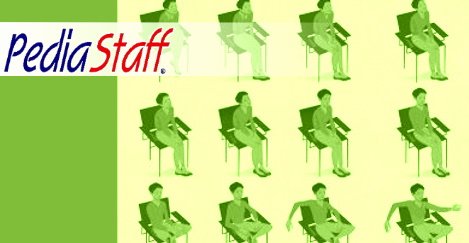Career Corner: Is Your Body Language Making You Fail Interviews?

At your last interview, you did everything right. You used the industry lingo. You answered the competency questions well. You demonstrated your skills, knowledge and experiences. You said everything right.
Yet, you did not get the job.
What could be happening then? It may be that you are overestimating your performance. However, an usual cause of failure in interviews is bad use of body language.
When you go on an interview, you have to watch both what your mouth is saying and what your body is saying. Ninety percent of all communication is non verbal. This means what you are saying is not really as important as how you say it. In your interview, how do you move? How do you sit? What gestures do you make? The answers to those questions areoften very important to the outcome of your interview.
If you want to be successful at your next interview, you must master the art of speaking positive body language. The following tips would tell what to do and what not to do in your next interview.
Gestures to Avoid
If you are in the reception with your legs stretched out, feet crossed and hands clasped behind your head with a relaxing expression on your face, what attitude do you think you are showing? Of course, an interviewer who sees you would think you are not interested in the job. This would affect your interview experience.
Are you appearing nervous and tense to the interviewer? Yes, an interview is often a trying experience but try your best not to show your tension to observers. Clutching a handbag or briefcase tightly, shaking and moving your feet up and down are gestures that may indicate to your prospective employer that you are nervous. If you want to nail that job, you must show confidence to your interviewer.
Do not touch your face or play with your hair while you are answering the interviewer’s question. This gesture suggests to the interviewer that you are being less than honest.
Handshakes are important in business. Learn how to shake hands properly. Believe it or not, people unconsciously form opinions about you based on how you shake hands. Also, do not cross your arms as your interviewer might think you are being defensive.
Positive Body Language
Make eye contact with your interviewer. This shows interest in what s/he is talking about. Also, approach your interviewer with an open stance as this signal honesty and friendliness. You want to build rapport and this simple gestures would go a long way in achieving that.
When you are seated and talking, sit straight up and lean slightly towards your interviewer. You would come across as respectful and attentive. Nod occasionally and SMILE. You can also try to mirror the interviewer’s body language.
Relax and end your interview on a positive note. Try your best to relax. If you are at ease, it would show and your interview would be more positive. You should also end your interview on a strong note. Stand up, smile and shake hands with the interviewer. Ensure you thank the interviewer for her time.
By mastering body language, you would be able to leave your interviews with a better impression and better communicate your skills, knowledge and experience to would be employers.
Reprinted with Permission of the author and Ace Employment Services
Since 1989 Ace Employment has been providing workforce solutions and matching talented individuals with top companies across Massachusetts. They specialize in the temp to hire and direct placement, office support, legal, financial and medical support personnel. To learn more about Ace, visit them at www.aceboston.net and follow them on Twitter @AceEmployment.
PediaStaff is Hiring!
All JobsPediaStaff hires pediatric and school-based professionals nationwide for contract assignments of 2 to 12 months. We also help clinics, hospitals, schools, and home health agencies to find and hire these professionals directly. We work with Speech-Language Pathologists, Occupational and Physical Therapists, School Psychologists, and others in pediatric therapy and education.
